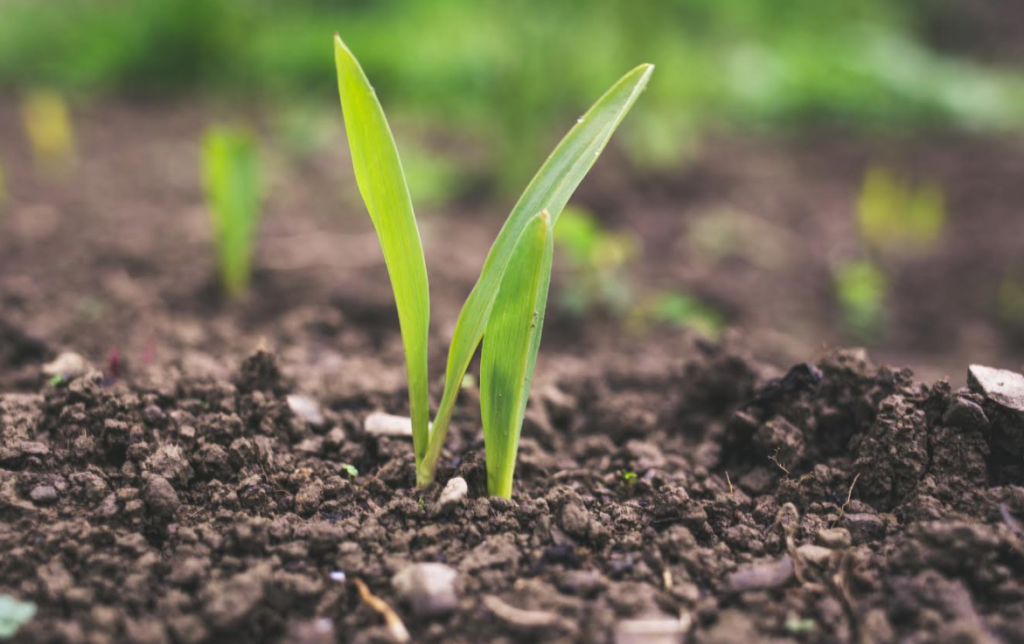As gardeners, we revel in playing in the dirt. Whether we tinker in a small urban patch or tend to an expansive plot, garden management starts well below ground level.
Meaty tomatoes, lush leafy greens, and bountiful squash benefit from a nutrient-dense foundation made with organic soil. And with soil being as unique as the gardener who tends it, quality varies from region to region, climate to climate, and season to season.
Soil is a living organism and, like anything in nature, needs year-round nurturing. Why risk damage, drought, or disease, when one of the easiest ways to boost your garden is by tilling in organic soil?

Table of Contents
What is Organic Soil?
The word ‘organic’ itself suggests that the soil is made of organic substances. Organic soil is a mini-ecosystem marriage of compost, plant decomposition, and animal manure. To the novice gardener, this combo may seem, er, dirty, but it’s this mixture of minerals and microorganisms that pumps life back into the earth and yields higher-quality food.
Non-organic potting soil combines peat moss and bark, along with artificial fertilizers and some chemical agents. It costs less than organic soil, produces faster crops, and contains a measured balance of primary nutrients — nitrogen (beneficial for leaves, stems, roots, and fruits), phosphorus (aids plant cell growth), and potassium (assists starch formation and fights disease) — custom to your region’s soil needs.
Organic soil touts many benefits, especially for the gardener searching for a chemical-free garden. Compared to conventional soil, it contains more nutrients and minerals, retains moisture better, provides superior drainage, and comes in specific blends for different plants and different pH levels. All in all, organic soil is the most sustainable path to food production.

Can You Make It Yourself?
If organic soil is made of organic materials generally available with a little time and labor, can you make it yourself? Indeed, you can. All it takes is a little legwork.
Food scraps combined with yard waste, aged manure, and mulch yield nutrient-rich compost. Throw fruits, vegetables, coffee grounds, eggshells, shredded newspaper, grass clippings, or garden debris into a compost pile or container, keep moist and warm, and turn often. Depending on your care for the composting process, a gardener can reap the rewards of their own compost in a couple of months or over a year.
Don’t have the time or patience for the composting process? You’re in luck. Organic garden supplies — like pre-made varieties of organic compost, mulch, potting mix, and more — are readily available, so you can start your soil amendment immediately.
What are the Benefits of Organic Soil?
Benefit 1: Better Hydration
Organic soil improves soil structure to allow water infiltration and soil aeration. It reduces water runoff, surface crusting, and the stickiness of clay soils. Blend in enough organic soil to the top six inches of your garden bed so it crumbles in your hand, not sandy or clumpy.
Benefit 2: Resists Pests and Disease
Because organic soil helps plants grow stronger cell wells, this additional layer of protection shields plants from pests and disease and even from soil mites. Gardeners don’t have to rely on chemicals to ensure plant protection. Using organic soil paves the pathway to a healthy, sustainable garden.
Benefit 3: Builds Long-Term Soil Health
Sure, non-organic soil can provide a quick boost, yet organic soil ensures long-term garden success. Feeding your soil each season with nutrients like nitrogen, phosphorus, potassium, copper, iron, zinc, and manganese from organic soil, a gardener builds onto the health of their soil year after year.
Overall, organic soil offers a sustainable, water-saving, and nutrient-rich technique for growing a garden. Getting your hands dirty becomes even more enjoyable when you know your seeds are getting the best nutrition possible.

